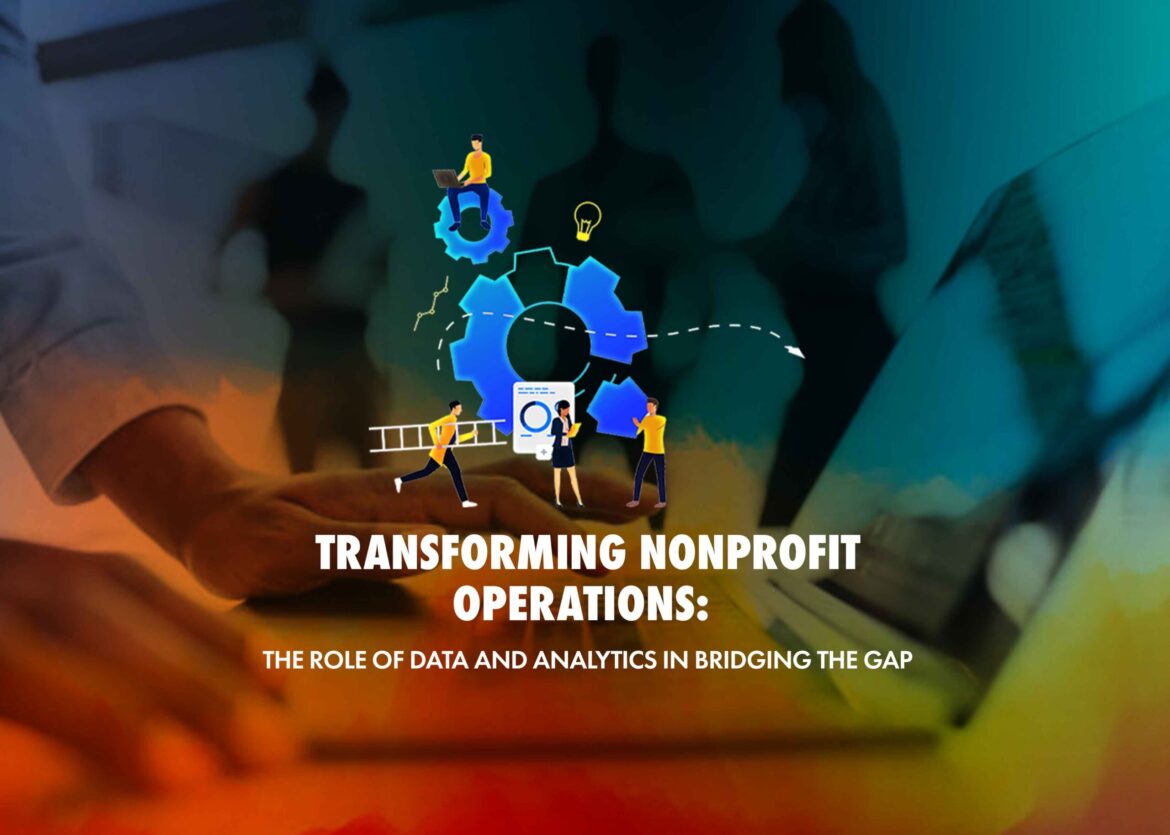Is your nonprofit struggling to meet the growing demand for your services and programs? Is it difficult to allocate resources effectively to meet these demands? If so, you’re not alone.
Effectively managing operational data can be overwhelming, but organizations of all sizes are working to enhance specific areas.
The good news is that there is a solution: data and analytics. While some may view data and analytics as optional, they are crucial for any nonprofit looking to maximize their limited resources. By making data-driven decisions, you can make every dollar count and optimize your organization’s resources.
However, it’s not just about saving money. Nonprofits are experiencing shifts in donor expectations for personalization and the impact of technology disruptions on program delivery, engagement, and impact assessment. These changes require nonprofits to adapt and embrace data-driven decision making for efficient operations.
By implementing data and analytics tools, nonprofits can gain valuable insights into their operations, identify trends and patterns that can inform strategic planning and decision-making. By analyzing data on donor preferences, program outcomes, and operational efficiency. This information can help organizations make informed decisions, identify areas for improvement, and measure their impact more effectively.
Nonprofits can also use data to better understand their target audience, personalize their outreach efforts, and improve donor engagement. By leveraging data, nonprofits can build stronger relationships with their supporters and increase their fundraising efforts.
In addition, data and analytics can help nonprofits demonstrate their impact to stakeholders, donors, and the community. By tracking and measuring outcomes, nonprofits can show the tangible results of their work and build credibility and trust with their supporters.
By investing in data and analytics tools, nonprofits can also streamline their processes, reduce costs, and allocate resources more effectively. This can ultimately lead to improved organizational performance and sustainability.
Overall, data and analytics have the potential to revolutionize the way nonprofits operate and achieve their missions. By harnessing the power of data, nonprofits can drive innovation, increase impact, and ultimately make a difference in the world.
Strategies to address these challenges
One way to tackle these challenges is by effectively managing data and using technology to streamline processes. Nonprofits can benefit from implementing data management systems to collect, store, and analyze data efficiently. This helps them make informed decisions, spot trends, and measure the impact of their programs. By automating tasks and reducing administrative work, nonprofits can focus more on their main mission.
Another key aspect is targeting and segmentation in marketing campaigns. This allows nonprofits to engage with their audience in a meaningful way. They need to understand their audience and tailor their messaging accordingly. By segmenting their audience based on demographics, interests, and behaviors, nonprofits can create personalized campaigns that resonate with their target audience. This can lead to increased engagement, donor retention, and ultimately, greater success in achieving their goals.
Moreover, nonprofits should prioritize increasing their program visibility and expanding their services. This can be done through strategic partnerships, collaborations, and effective communication strategies. By raising awareness about their programs and services, nonprofits can attract more support, both in terms of funding and volunteers. This increased visibility can also help them reach a wider audience and meet the growing demand for their services.
Lastly, regular evaluation of effectiveness is crucial for nonprofits to ensure they are maximizing their resources and achieving their desired outcomes. Try to use tools such as surveys, feedback forms, and data analysis to gather information and evaluate the effectiveness of their programs. This allows them to identify areas for improvement, make data-driven decisions, and ensure that their resources are being used efficiently.
Overall, tackling the challenges faced by nonprofits requires a multi-faceted approach. By effectively managing data, targeting and segmenting their audience, increasing program visibility, and regularly evaluating their effectiveness, nonprofits can overcome obstacles and achieve their mission more effectively.






